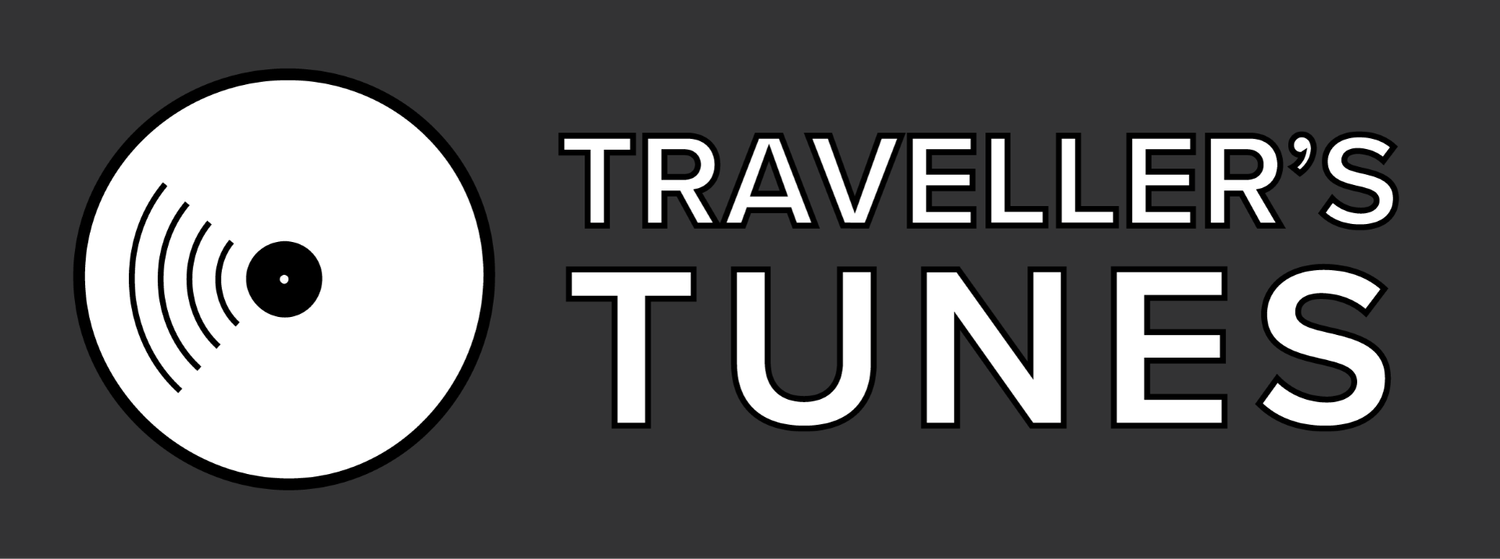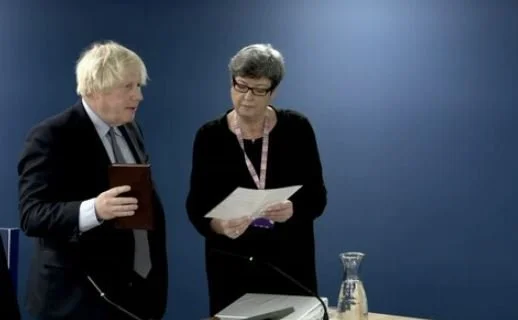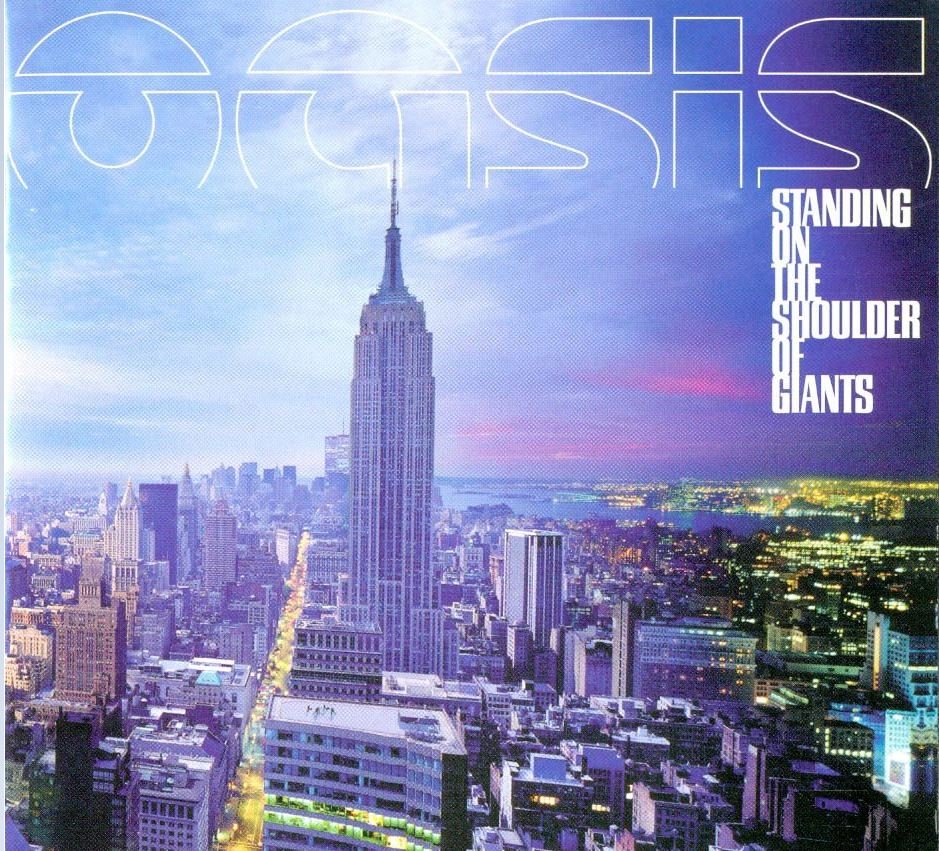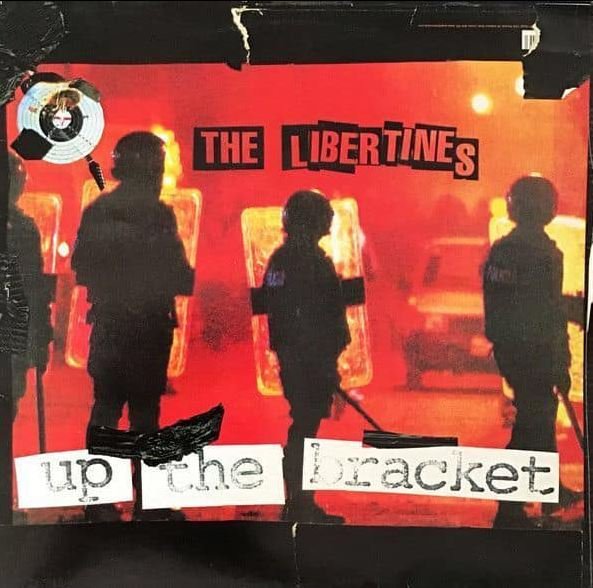
Top 30 Albums of 2023
Top 30 Albums of 2023
What a year. Perhaps the best in recent memory for new rock ‘n’ roll acts striking out. Social comment has begun to forge bonds with the devil, and the results have been breathtaking. It’s seen plenty of 00s stalwarts prove they’re not done creatively.
Find out where they’ve ranked in our top 30 albums of the year:
30. NGHFB – Council Skies
Some great moments blended with average ones. Lockdown and pending divorce may have hit the consistency, but there’s enough melody to keep you returning for more.
29. The Kynd – Timelines (full review here)
The long-awaited second album from 90s outfit The Kynd is a touch of baggy-mod class.
28. Neev - Catherine
Heartfelt folk from the Glaswegian songwriter who will surely go on to bigger and better things.
27. Adam Nutter – Badlands On Fire
Celestial instrumentals from The Music’s lead guitarist.
26. Andrew Cushin – Waiting For The Rain
The Geordie singer-songwriter’s debut shows glimpses of a much brighter future.
25. Emy P - Lights // Chaos // Action
Intense tales of love, coming-of-age, and mental health. Raw Kai Tempest meets Scroobious Pip vibes.
24. Bag of Cans – We Are A Band
Lunacy. Brilliant, hilarious lunacy!
23. DMAs - How Many Dreams?
Polished anthems from the Aussie heroes.
22. The Boo Radleys - Eight
The cult Scouse heroes continue their fine run of form since returning in 2021.
21. Egyptian Blue – A Living Commodity
Off-beat but cohesive post-punk striving for glory.
20. Death of Guitar Pop - Be Lucky
The third installment from the DIY Ska outfit.
19. Grian Chatten - Chaos For The Fly
The Fontaines frontman strikes out with a timeless sense of songwriting.
18. The Shed Project – Our Fear Is Their Power (Full Review here)
What began as mates in a Shed playing for fun has become the do-or-die rock ‘n’ roll generations live for! Their attempt to convey their moods has given a window into a nation teetering on the edge of revolt at its politicians, media, and institutions falter.
17. Mull Historical Society – In My Mind There’s A Room
Colin McIntyre’s literary project is littered with melodic gold and award-winning author cameos.
16. Jasmine Minks – We Make Our Own History
The former Creation Records maestro’s prove they can still cut it with the best.
15. Treasures of Mexico – Burn The Jets (full review here)
Three albums in, Treasures of Mexico show no signs of tailing off. ‘Burn The Jets’ is a heartfelt slice of guitar joy that all should bask in.
14. King Creosote - I DES
Fife’s finest fok artist continues to find pockets of magic twenty-five years after his debut.
13. Afflecks Palace – The Only Light In This Tunnel Is The Oncoming Train (full review here)
The rise of Afflecks Palace continues steadfastly. It’s beautifully aimless, passionate, and soul-enriching. 100 years from now, they will not be forgotten!
12. Slowdive - Everything Is Alive
Utterly spellbinding.
11. Das Koolies - DK.01
Four members of Super Furry Animals strike out with breathtaking results.
10. Trampolene – Rules of Love and War (full review here)
The journey from ‘Swansea To Hornsey’ youthful fire to ‘Rules Of Love and War’ measured prose has been six years of hope, self-doubt, escape, self-discovery, and now, one of triumphant return. The mission statements they dreamt up in bedrooms in 2017 are now becoming fully realised via richer creative palettes. Coupled with Jack Jones’ purist of souls, long may Trampolene’s ship sail on.
9. Senses – Little Pictures Without Sound (full review here)
‘Little Pictures Without Sound’ is an album by dreamers for dreamers. Even in its most lo-fi moments, it’s touched by the hands of fantasy. It breeds a vision of a better life at every turn.
8. Tom Clarke– The Other Side
2023’s best kept secret! The Enemy frontman’s second solo album is his finest set of songs. Timeless songwriting showcases what a generational talent he is!
7. The Goa Express - The Goa Express
Life-affirming indie that’ll soundtrack a generation coming of age!
6. The Coral – Sea Of Mirrors (full review here)
The drifters charter. Masterful songwriting.
5. The Dream Machine – Thank God It’s The Dream Machine (full review here)
The Wirral has a new set of outsiders to idolise!
4. Joel Stoker – Undertow (full review here)
After two decades with The Rifles, making any solo album was a brave decision. To tackle his living nightmares and chart a musical course a world away was truly courageous.
3. The Velvet Hands – Sucker Punch (full review here)
Skint, downtrodden, and overtaken by those who can afford it or the artistically redundant. Despite the odds against them and cultural pressures pushing them toward a boring mainstream landscape, the band have funnelled their joyous punk debut into something more studied and grander this time out.
2. Pynch – Howling At A Concrete Moon (full review here)
Pynch’s debut album is full of such great era-defining couplets it's easy to overlook just how many great musical moments it possesses. The dreamy Real Estate and Horrors-esque (circa ’V’) synths of opener ‘Haven’t Lived a Day’ or the solos on ‘Tin Foil’ and ‘Maybe’, to name just a few.
A truly great moment in a sea of political despair. Viva la hope!
1. The Utopiates – The Sun Also Rises (full review here)
Whether you’re coming of age or finding a new lease on life, The Utopiates are the band to soundtrack it. From ‘Devolution’ to ‘It’s Coming To You’ they clutch onto hope with their fingernails as their sonic tumbles towards the darkness. Like all great bands before them, they find a way to lead the mortals out of their doldrums. During the introspection of ‘The Sun Also Rises’ the fog begins to lift allowing the rhapsodic ‘Ups and Downs’ conjures a moment of unrivalled happiness. The journey to their promised land is completed on the angelic reflective come-down piece ‘Simple Minds’.
Undeterred by Spotify’s influences, they take their time on intros and solos alike. They’ve allowed rock ‘n’ roll to breathe once more. The results are nothing short of a perfect debut album.
2002: The Great Reset
In 2000, the music landscape was bleak. Nu-metal dominated the airwaves. Skate-punk fashion was rife. The UK had lost its edge and was in the shadow of a wave of toxic masculinity and god-awful sound and fashion of nu-metal and skate punk.
‘Standing On The Shoulders Of Giants' endured rather than thrived. ‘Gas Panic’ and ‘Fucking In The Bushes’ were fleeting moments of brilliance amid a sea of dross. If they had embraced Noel’s cold turkey writing via ‘Cigarettes in Hell’ and ‘One Way Road’ would have at least given the UK’s cocaine hangover an interesting perspective.
It wasn’t just Noel all at sea. In 2001, the revolutionary class of 1994 and bombast of 95 & 96 was all fading in some form or another. The Manics, Supergrass, and Ocean Colour Scene all produced underwhelming albums. Shed Seven, who did find their punk spirit on their ‘Truth Be Told’ were being marginalised and forced out of a scene they once lit up from the periphery.
Something needed to change to make Neil Young right.
In 2001 The Strokes blew up with their garage rock classic ‘Is This It?’ and rightly took all the plaudits. Meanwhile, Black Rebel Motorcycle Club and Soundtracks Of Our Lives kept the flame alive for rocks heritage with great albums. Alas, it never felt enough for British hearts and minds. The reference points and fashion were ever so slightly out of reach. For most, they were too cool for our feral shores. It meant rocks pendulum remained in the US.
However, in March via West Birmingham, one man was going well beyond the concept of resetting rock ‘n’ roll. Mike Skinner was rewiring hip-hop and dance music. Inspired by MJ Cole’s fine ‘Sincere’ album in 2000, Skinner took the worthiness of Ken Loach to the benign garage scene to conjure art for the ages.
‘Turn The Page’ and ‘Original Pirate material’ stripped everything back to MJ Cole’s meaningful vision of the scene. Skinner’s unique vocal delivery consigned a plague of West Coast wannabees to the bin. It went beyond garage music though, he conceptualised weed smoker philosophy with Ray Davies’ sense of characterisation and storytelling (‘Too Much Brandy’ / ‘Same Old Thing’). ‘Stay Positive’ was a desolate uncertain tale of a friend trying to keep fellow souls from drug and violent descent. It was the trailer to the great British grime phenomena coming via Dizzee in 2003 and Kano in 2005. It culminated in ‘Weak Become Heroes’, his ode to raves and ecstasy. Reigniting the second summer of love and rave culture in a Blake-esque poem in 2002, when Blairism was motoring toward PFI contracts and corporatism was a great cultural moment. It signified a generation uneasy with the power being wielded and, if pushed too far, would force escape through drugs and music once more.
Never to be left out of any scene, Liverpool was preparing to release psychedelic folk punk onto the airwaves. On April 17th, The Coral signed to Deltasonic and played Dingwalls and thus, turned their lives upside down. Noel Gallagher talked of that day to Jools Holland in lockdown:
“this band were playing at dingwalls…these lads walked on stage and they were kids. They were so young that they’d signed their record deal that day but their parents had to sign it for them and they played this song, it sounded like Frank Sinatra meets The Who meets Burt Bacharach…”
James Skelly’s unfettered vocals alongside Bill Ryder Jones and Lee Southall’s guitars were beautifully jarring. They had the ability to take Beefheart to the studio with Bacharach and Costello. Like Skinner, their talent was obvious, ‘Dreaming of You’ was an instant pop classic, but it was their beatnik fuck everyone attitude that shone brightest. British bands were supposed to make verse, chorus verse solo outro songs. ‘Waiting For Heartaches’ toyed with tempo and big key changes like an Arthur Lee wet dream. ‘I Remember When’ sees Skelly’s raw Roger Daltrey vocals front up a psychedelic sea shanty, whilst ‘Simon Diamond’ took Syd Barret’s psyche-folk out for a walk with Karen Carpenter. Perhaps more than most that year, they embodied what youth can do for the soul. Unaffected by failure, they reinvented what Mod could be their untamed debut.
Across the Pennines in Leeds, The Music, the most overlooked during 2002’s great reset, were led by break dancing front man Rob Harvey who later joined The Streets and Kasabian. Their self-titled debut, like The Coral, looked not to merge their disparate influences but, to smash them into oblivion a la Jackson Pollock and see what stuck. The space rock of The Verve, Robert Plant’s bewitching vocals, and Nile Rodgers licks flirted with electronica and the early hiss of Oasis on this wild adventure. They fixed the failures of the Roses ‘Second Coming’ and they injected The Verve’s ‘Storm In Heaven’ weightlessness with a punky outlier spirit courtesy of Adam Nutter’s guitars.
While the nods to the past were apparent, Robert Harvey’s vocals served up a purity so distilled it engaged a new generation of rock classicists. Coupled with his on-stage dancing, it gave fans a freeing impetus to clutch the band to their hearts and decree “this is ours”.
It was though, in the moments they made you dance they truly lifted the UK scene out of the doldrums. ‘Disco’ builds like early Ride before erupting into a psychotic bout of funk and soul. Moreover, ‘Float’ did what the Mondays and the Roses did so well in the 80s and tapped into the dance trend of the time; nu school breaks. Nailing the relentlessness and twitchiness of an Adam Freeland or Krafty Kuts set into 5mins of rock music was remarkable.
Then, on 14th October 2002, the axis of rock ‘n’ roll truly splintered into something new. The Strokes’ influence on The Libertines had been colossal. The band re-routed its power supply from John Hassall’s 60s flowery numbers to Pete and Carl’s Kinks via The Clash brutality tales of England. On hearing ‘This Is It’, Pete and Carl in collusion with Banny Poostchi, launched ‘Plan A’; an all-or-nothing mission to get them signed to Rough Trade in six months. After a showcase for James Endeacott, they were tipped to Geoff Travis and the rest was history.
The internet hadn’t really been a force for good in the music industry to this point. The Libertines, like many of the architects of Silicon Valley were dreamers though. Guerrilla gigs, invading Zoe Ball’s XFM show, house parties, and free tattoos in Soho were orchestrated from their blog and fan forums. Whilst other bands were all about the music, The Libertines went further. They created the community we yearned for. Much like the early 70s before punk, rock music had become bloated and out of reach for the common man. They took it back to the streets, literally on some occasions. They inspired people to pick up guitars and poetry books. They changed fashion, alas, they changed drugs.
Not that the music didn’t matter. The skill levels were down but the hope stakes were through the roof! The guttural sound from the guitars was so desperate, they were the catalyst for change culturally that millions were waiting for.
2002 saw the initiation of the war on terror. It was the inauguration of Blair’s descent. It left so many feeling dirty, sorrowful, and uneasy with their country’s place in the world. What The Libertines did was, remind the world what England could be. Dangerous but poetic. Unhinged but beautiful. Keats and Yates were on their side!
The landscapes and characters were familiar but the dreams were new. ‘Time For Heores’ spawned the greatest couplet since ‘Cigarettes and Alcohol’:
“There's fewer more distressing sights than that
Of an Englishman in a baseball cap”
‘The Boy Looked At Johnny’ is arguably the best proponent of their back-and-forth vocals which were to become famous, infamous, and their harmonious over the course of 20 years. They sounded like a drunken night, staggering through the streets antagonising anyone who wasn’t with them (and Johnny Borrell). Pete’s ability to elevate a song with a fragile melody in the chorus was finding its feet here, something that he would go on to perfect but, all too infrequently.
“we set out to be as exciting as the Pythons”. (Rik Mayall talking to Wogan in 1984)
This eclectic bunch was the same. Like a great John Hughes movie, the youth just wanted to be heard! For music lovers, it was the raw reset filled with adrenaline and ecstasy the alternative scene needed. It spawned another 8 years of bands. Wave upon wave they came. The kids who flooded playgrounds with kickers and Mr. Spliffy jackets and had grown up and wanted their time and boy, they took it! It was, sadly, to be the last hurrah of the music industry paying bands properly. The well-worn social contract of., take your shot at glory and escape the doldrums was dissipating as the world raced to the bottom.
However, for one year, hope was everywhere. Psychedelic punks, social commentators, romantic poets, and riff makers alike came together to tear down the tired fabric of the rock industry as we knew it.
Top 30 Albums of 2021
30. Maximo Park – Nature Always Wins
Seven albums ion and, the North East gang can still find innovative ways of making their introvert pop music come alive.
29. The Umbrellas – The Umbrellas
The beauty of Jetstream Pony and the pop majesty of the Bangles. Truly joyous!
28. Jackson Browne - Downhill From Everywhere
The maestro proves he still has hearts to melt and thoughts to provoke in his twilight years.
27. Little Simz – Sometimes I Might Be Introvert
All the potential has come to fruition. This is an artist approaching the peak of their powers.
26. Blue Orchids – Speed The Day
Warped Stranglers-esque bangers about the future. What more could you want?
25. The Other Ones – The Other Ones
Intelligent, raw, and emotive, it doesn't just tick all boxes, it shatters them! (Full review)
24. The Catenary Wires – Birling Gap
Amelia Fletcher and Rob Pursey writing partnership have matured to career-high. A great sense of Englishness comes from their folk meets indie splendour.
23. La Luz – La Luz
The fuzz, the funk, the wizardry. More, please!
22. The Shop Window – The State of Being Human
The excitement, hope, and splendor of Blur’s ‘Modern Life Is Rubbish’ is reimagined via the Roses, Ride, and Teenage Fanclub.
21. The Stan Laurels – There Is No Light Without Dark
From The Shins to Housemartins to Edwyn Collins, John Lathrop’s 4th album under this guise is riddled with great pop sensibilities.
20. David Long & Shane O’Neill – Moll & Zelis
Long and O'Neill's life-long connection has burrowed through the inhuman aspects of technology to really connect musically. (Full review)
19. Mogwai - As The Love Continues
Right in the slot of what makes them great!
18. Paul Weller – Fat Pop
Another lockdown (mostly) written album. Weller manages to channel his inner Baxter Dury and Erland & The Carnival on yet another fine album.
17. Billy Bragg – The Million Things That Never Happened
The best album from the Barking songwriter since 2008’s ’Mr Love & Justice. A heartfelt exploration of modern politics, letting go of the past, and parking cynicism to the back of the mind.
16. Ian M Bailey – Songs to Dream Along To
The heart and soul of CSN, The Byrds, and REM are reawakened here. With help from Daniel Wylie, he manages to conjure endless rays of sunshine.
15. Robert Plant & Allison Krauss - Raise The Roof
The follow-up to 2007’s masterpiece ‘Raising Sand’ doesn’t hit the same highs but, their connections remain as authentic, challenging, and romantic as ever.
14. A Smyth - Last Animals
‘Last Animals’ is awash with the characteristics of great songwriters past and present. Perhaps, at times his vocals don’t find their distinct voice but, to tales this good, does, should, anyone care? (Full review)
13. The Coral – Coral Island
The double album should have been condensed into one truly great one. However, it’s impossible to deny the scouse bands pedigree as they approach their 20th anniversary.
12. For Those I Love – For Those I Love
Despite the specificity of David Balfe’s grief and portrayal of Belfast, his songwriting pertains to a universality opening the album up to all.
11. Desperate Journalist - Maximum Sorrow
An album written in lockdown had the potential to be a lacklustre album from the tour bus; insular and lacking intelligent exploration. Not here, not Desperate Journalist. Every word is packed with vitriol and torment, and despatched with wit, intelligence, and charm. (Full review)
10.. Daniel Wylie - Atoms and Energy
No matter the mood or subject, Wylie can pivot to a happier sonic and thus, allows each song to develop greater depth and value. (Full Review)
9. Fightmilk – Contender
It will bash your soul, break your heart and patch you up mentally, emotionally, and intellectually better than ever! (Full Review)
8. The Reds, Pinks and Purples – Uncommon Weather
Joy and devastating pain collide on this glorious windswept album. The pain of The National is taken for walk Elliot Smith and c86 and the results are sublime.
7. Jarvis Cocker – Chansons d ’Ennui Tip-Top
Billed as the comparison art piece to Wes Anderson’s latest film ‘The French Dispatch’, Cocker has conjured pure majesty on his album of French pop covers.
6. Damon Albarn – The Nearer the Fountain, More Pure the Stream Flows
His second album touches nature with the isolation of lockdown. So pure is its connection with his surroundings, even Bon Iver will wonder how it was done.
5. Afflecks Palace – What Do You Mean It’s Not Raining
So many have striven to be like the greats, Afflecks have found space in their slipstream on this debut. How soon they can overtake remains to be seen but, their destiny clearly lies alongside them at least! (Full review)
4. Bobby Gillespie, Jenny Beth, and Primal Scream – Utopian Ashes
This achingly beautiful delve into a fictional failed marriage is laced with southern soul, Emmylou, and a vulnerability so stark that, you’ll be lost from note one.
3. David Crosby – For Free
After various health scares, Crosby is unsurprisingly reflective mood. The results are astonishing as he turns his soul inside out.
2. The Institutes - Coloseums
This album’s spirit is nothing short of heroic. Its quality vastly towers over its peers. (Full review)
1. James – All Colours of You
Locked inside, missing the death of a parent, the soul should have been crushed. It could have been the end for this illustrious band. However, through the grief and the agony, they have produced a benchmark-setting album. Few can say they have ever laid their soul this bear with such poignant poetry.
Top 20 of 2016: 10 - 6
10 Heron Oblivion - Heron Oblivion
The San Francisco super group will lure you in with Meg Baird’s lush vocals before Noel Harmonson and Charlie Saufley’s guitars melt your ears with the spirit of Jimmy Page. No one has delivered the calm with the frenetic so poetically this year.
9 Misty Miller – The Whole Family Is Worried
What a special talent Misty Miller is. Heartache has never sounded so devastating on ‘Best Friend’ and sarcasm has never been so devilishly delivered as it is on ‘Happy’. The album details a troublesome time between the ages of 18-20 with expertise way beyond her years.
8. The Coral - Distance Inbetween
Not content with just reaffirming themselves to the world, The Coral have set about introducing key aspects of prog into their pop songs. ‘Beyond The Sun’ uses spellbinding organs, allowing this track to float away into the ether. Meanwhile, ‘Distance Inbetween’ pays homage to Dave Gilmour’s archetypal Floyd sound with a slow build and superb solo release.
7. Whyte Horses- Pop or Not
Sultry psyche-pop music from start to finish. The influences appear in great numbers but, it’s the vibrant melodies that shine through.
6 Recreations - Baby Boomers 2
The way in which Duckworth changes gears on ‘Baby Boomers 2’ is ultimately its biggest success. For fans of alternative pop music, this album is perfect. It moves from downbeat electronic folk to Calvin Harris pop with cutting lyrics and thus, is always intriguing.










